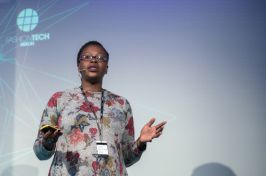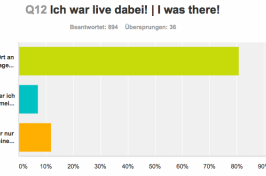Technology at the price of total control – sociologist Richard Sennett sees modern cities as intentionally closed systems that have come about as a result of their architecture. He demanded their opening in his "The City as an Open System" talk on Day 1 of the re:publica TEN.
Frankfurt? Shanghai? When landing after a long flight, it isn't always easy to recognize what continent you're actually on. Modern cities keep getting more and more similar. "These types of similar building styles are a result of globalisation", explained the London-based sociologist Richard Sennett. He names the investors, who build these closed systems, as the cause – big building complexes that function anywhere, be it Rio or Delhi.
These complexes don't interact with their surroundings, but isolate themselves. Especially poorer people and minorities are supposed to stay outside. "These are social silos, protests or regular encounters with other classes are to be prevented" according to Sennett. Europe is also affected by this, only the top 20 percent profit from the changes in the big cities. "Their economic situation is very dynamic, there's no way forward for the lower 80 percent" Sennett carried on. "And if conflicts arise, then the groups are just positioned as far away from each other as possible."
But, according to Sennett's theory, it would be wiser to actually place the groups next to each other: If you could combine Berlin-Neukölln with the Savignyplatz in Berlin-Charlottenburg you would not just get both elements, meaning 1+1=2, but a new, open system that would do more than just the addition of its parts. "Both systems together are more than just two, because they interact with each other", says Sennett. Open cities need to blur borders. The place where two worlds meet is usually the most dynamic, for example, where land and water meet. Modern cities have to use this proven effect.
Cities – as well as the internet – have increasingly become closed systems over the last 20 years. Big companies that dominate the market further this process. "The Google principle is now being applied to urban systems. IBM, especially, is attempting to build up a monopoly on the IT systems that cities need for big data" Richard Sennett warned. For the future, he wants to reverse these processes and use big data to break up these monopolies. “Smart cities dumb people down" he said, whereas the intelligent cities of tomorrow were actually supposed to make their inhabitants smarter.
Image: re:publica/Gregor Fischer (CC BY 2.0)





